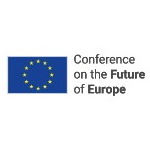Brief me
The Conference on the Future of Europe is a bottom-up, pan-European initiative composed of multiple interlinked events and debates where citizens, civil society and all other stakeholders (including local, regional and national authorities) from Europe are able to share and discuss their ideas, in all official EU languages, on what they expect from the European Union. The Conference is more than a mere listening exercise. The European Parliament, the Council and the Commission have committed to following up on the Conference’s outcomes.
While based on a Commission proposal, the Conference is a joint EU initiative, piloted by the European Parliament, the Council and the Commission.
The Conference is based on the following types of events (either in-person, digital or hybrid):
- Decentralised events in a wide variety of formats organised by the Institutions, Member States or third parties (e.g., local authorities, organised civil society, citizens) under the umbrella of the Conference and in line with the Conference Charter - a set of principles defining what the Conference is about and how it should be conducted, with a view to reaching the widest possible audience. The outcomes of the events are posted on the Conference’s digital platform.
- Four thematic European Citizens’ Panels organised by the EU Institutions. Each panels will be composed of 200 randomly selected citizens, representative of the EU population in terms of geographic origin, gender, age, socioeconomic background and level of education. The panels will be organised between September 2021 and February 2022.
- Conference Plenaries, composed of 108 representatives from the European Parliament, 54 from the Council and 3 from the European Commission, as well as 108 representatives from all national Parliaments, and 108 citizens. 18 representatives from the Committee of the Regions and 18 from the Economic and Social Committee, 8 from the social partners, and 8 from civil society will also participate. The plenaries will ensure that the recommendations from the European citizens’ panels are debated without a predetermined outcome, also considering the results of the decentralised events. The first Conference Plenary is being planned for 19th June 2021.
The multilingual digital platform, launched on 19 April 2021, is the Conference’s central hub and a first at the pan-European level in terms of scale, interactivity and multilingualism. It centralise all Conference-related contributions from various citizens’ events (and will also act as a repository for all Conference-related documentation), including proposals emanating from European Citizens’ Panels and Conference Plenaries - the Conference’s two other main strands.
Through the digital platform, citizens, civil society and all other stakeholders can share their ideas on the issues that concern them, comment on other people’s ideas and organise events (virtual and, when possible, in-person and hybrid).
The JRC contributed to the overall design of the Conference, from a business perspective, providing recommendations to DG COMM on the process and assisting in the drafting of the Conference Charter.
Initial work done by the JRC was key in the assessment of leading civic tech platforms in terms of their suitability for the Conference on the Future of Europe, as well as different implementation options. The open-source platform Decidim was selected as the platform for the Conference on the basis of the JRC recommendation. The JRC’s knowledge in the field of citizen engagement has also helped adapt the Decidim platform to the needs of the Conference and to further improve it with new features of moderation, event organisation, voting, and proposal analysis. Following the launch of the digital platform, the JRC has a critical role in the analysis of contributions submitted by participants.
Latest knowledge from this Project
What Future for Participatory Democracy in the EU?
The New European Bauhaus joins the Conference on the Future of Europe
More information
| Project URL | |
| Originally Published | Last Updated | 25 Jun 2021 | 20 Feb 2023 |
| Knowledge service | Metadata | Participatory Democracy |
| Related organisation(s) | JRC - Joint Research Centre |
Share this page

